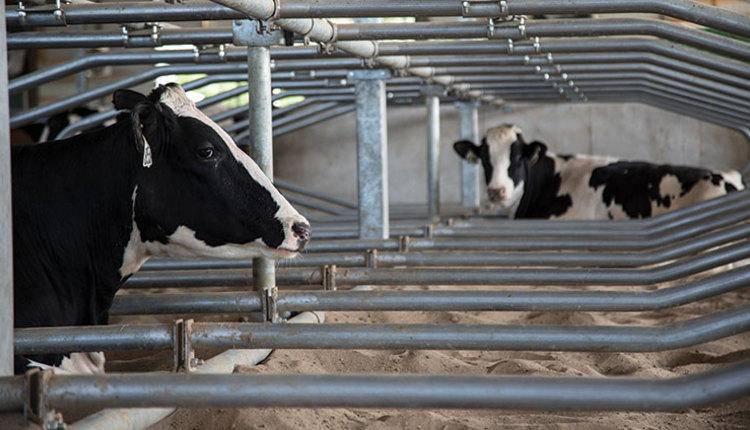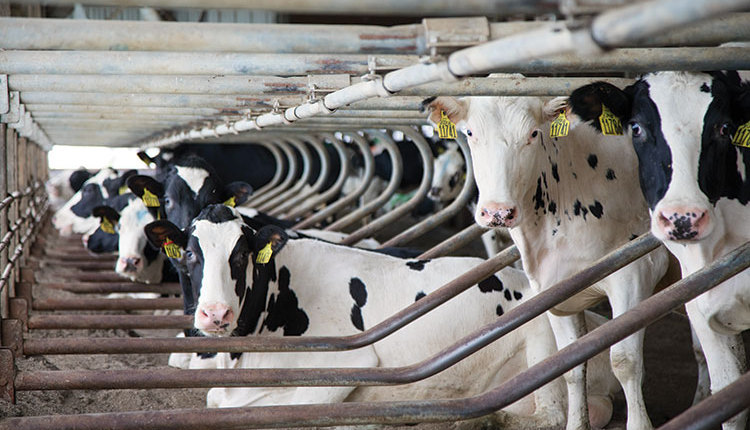
A fundamental rule in business is that “The customer is always right.” If customers’ needs are not being met, they will look elsewhere for goods or services.
Traditional dairy veterinarians have provided a service, professional expertise in bovine medicine and surgery, for conventional dairymen for decades. Over the years, the needs of the customer, the dairyman, have changed. The veterinary profession has recognized these needs and changed to meet them.
Organic dairy farming is a growing segment of the industry, yet the organic “customer” is sometimes viewed by the veterinary profession as being “wrong.” As a consequence, the unique veterinary needs of the organic dairy herd are largely being unmet.
This presents a great opportunity for organic dairymen and dairy veterinarians to cultivate a mutually beneficial relationship. To do so, we must first understand each other better.
Those unfamiliar with organic dairying — which unfortunately includes most conventional dairy vets — are prone to speculating and making assumptions. Speculation has no place in modern science, where evidence is the gold standard by which one properly draws conclusions.
As highly trained animal scientists, it is nonetheless understandable that vets speculate that alternative therapies are ineffective. Medications and therapeutic approaches lacking strong empirical evidence are viewed with a skeptical or jaundiced eye. Partly because of a perceived or actual lack of published evidence or guidance about organic treatments, many veterinarians are reluctant to take on organic clients.
This is unfortunate for organic producers, their livestock, and for vets. As the number of organic farms and farm animals has grown, the need for qualified veterinary service and advice has as well.
The scarcity of evidence-based therapies and the relationship between organic producers and veterinarians have attracted the attention of investigators. To date, studies show that organic producers tend to use veterinarians to a lesser degree than their conventional counterparts. An Iowa study revealed that while vets generally had an interest in working for organic farms, the lack of evidence-based therapies and the lack of training and information resources about organic practice discourage them from actively recruiting organic clients.
The clients, on the other hand, felt that they had sufficient access to veterinarians and that their knowledge was adequate. Organic producers also felt that disease was less prevalent on their operations. This determination is questionable as disease data entry and thus therapeutic outcomes tended to be less rigorous than on conventional dairies.
This apparent satisfaction seems to be an American phenomenon. A 2017 French study suggests that organic dairymen are eager for vet involvement that goes beyond traditional, therapeutic practice to include participation in advisory team meetings and contributing to holistic long-term health planning of the farm.
There currently exists a large gulf between how French organic dairymen and their vets view herd health. The farmers take a holistic, long-term, and homeostatic view of the herd, which may tolerate low levels of disease.
The vets, on the other hand, are trained to view diseases such as endoparasitism (“worms”) as something to ideally be eradicated, rather than tolerated or gradually adapted to. The farmer is concerned with herd immunity, resilience, and regeneration, whereas their busy vets tend to focus on the individual cow and less on its place in the herd and its environment.
A difference in perspective
As few vets have had any formal training in organic therapies and tend to view lower producing organic herds as less successful, they may lack respect for organic farmers’ goals. A difference in perspective often exists; after all, any vet brags about his or her herds that exceed the conventional benchmarks for production, reproduction, and milk quality.
The organic dairyman looks at a different and bigger picture. His motivations for converting to organic production often include a desire for a better quality of life, a perceived positive impact of his farming on the environment and human health (granted, this is not proven), and improved economic viability. A paradigm shift is necessary for vets to acknowledge, understand, and appreciate that his organic customer often has different goals and priorities than his typical client.
So how can aspiring organic veterinary practitioners build their knowledge? Courses in alternative therapies are rarely, but increasingly, included in an already-crowded veterinary school curriculum. As a consequence, both new and old grads must seek out scant resources that explain organic therapies and approaches (my book, “Practical Organic Dairy Farming,” was inspired by this need).
The modern organic dairy vet is largely self-taught, as is his client. Fortunately, help is on the way from the federal government. The USDA, which oversees the National Organic Program (NOP), is funding organic research under the Organic Research and Extension Initiative (OREI). In 2017 alone, over $17 million are available for research projects.
From the NIFA website: “The OREI seeks to solve critical organic agriculture issues, priorities, or problems through the integration of research, education, and extension activities. The purpose of this program is to fund projects that will enhance the ability of producers and processors who have already adopted organic standards to grow and market high-quality organic agricultural products.”
An expansion in published evidence on alternative therapies will both improve vet confidence in them and ultimately benefit organic patients. It may seem surprising, but vets are not limited to alternative therapies when practicing organically. Despite common misperceptions, numerous conventional, and even synthetic medications are permissible under organic production rules, detailed in the NOP document, “National list of allowed and prohibited substances.”
At your service
Vets, even if not yet expert at alternative therapies, potentially bring a lot to the organic dairyman’s table. Vets are knowledgeable in pharmacology and can help craft farm-specific, effective organic standard operating procedures (SOPs) and thereby optimize the use of often-expensive alternative therapies such as botanicals and tinctures.
They can help during the challenging process of transition from conventional to organic status. Vets can improve animal welfare by setting prescriptive points for conversion of organic patients over to conventional therapy (allowed and encouraged under NOP policy). They can prescribe anesthesia and pain relief for tasks such as dehorning. Good welfare on the organic dairy also includes performing surgery; displaced abomasums and caesarian section can have an excellent prognosis to return to profitability.
They can sample tissues and blood for important trace minerals, helping nutritionists create a ration that best supports immunity and reproduction. Postmortems can identify disease agents and help to refine vaccination programs. Vets are trained in biosecurity, which is a special concern in pastured cattle that are potentially exposed to wildlife and may have fence-line contact with neighboring herds.
Most vets likely work at many different sizes and styles of dairy operations and have a large sphere of influence. Consequently, if they don’t have an immediate answer to a problem, they likely know whom to contact or where to look for a solution.
Vets are adept in data analysis; they can assist organic producers in setting up accurate data recording systems. Information gathered on disease incidence and response to alternative therapies is to the great future benefit of the organic industry in that effective treatments can be recognized and developed. They can participate in and convene advisory team and producer meetings to share organic knowledge.
I predict that the future is bright for both organic dairying and organic dairy practice. I invite my conventional colleagues to embrace the challenge of organic practice. I encourage both dairymen and women and their vets to enter into productive dialogue. Your relationship will prove be a classic win/win; intellectually stimulating, professionally rewarding, and mutually beneficial.








